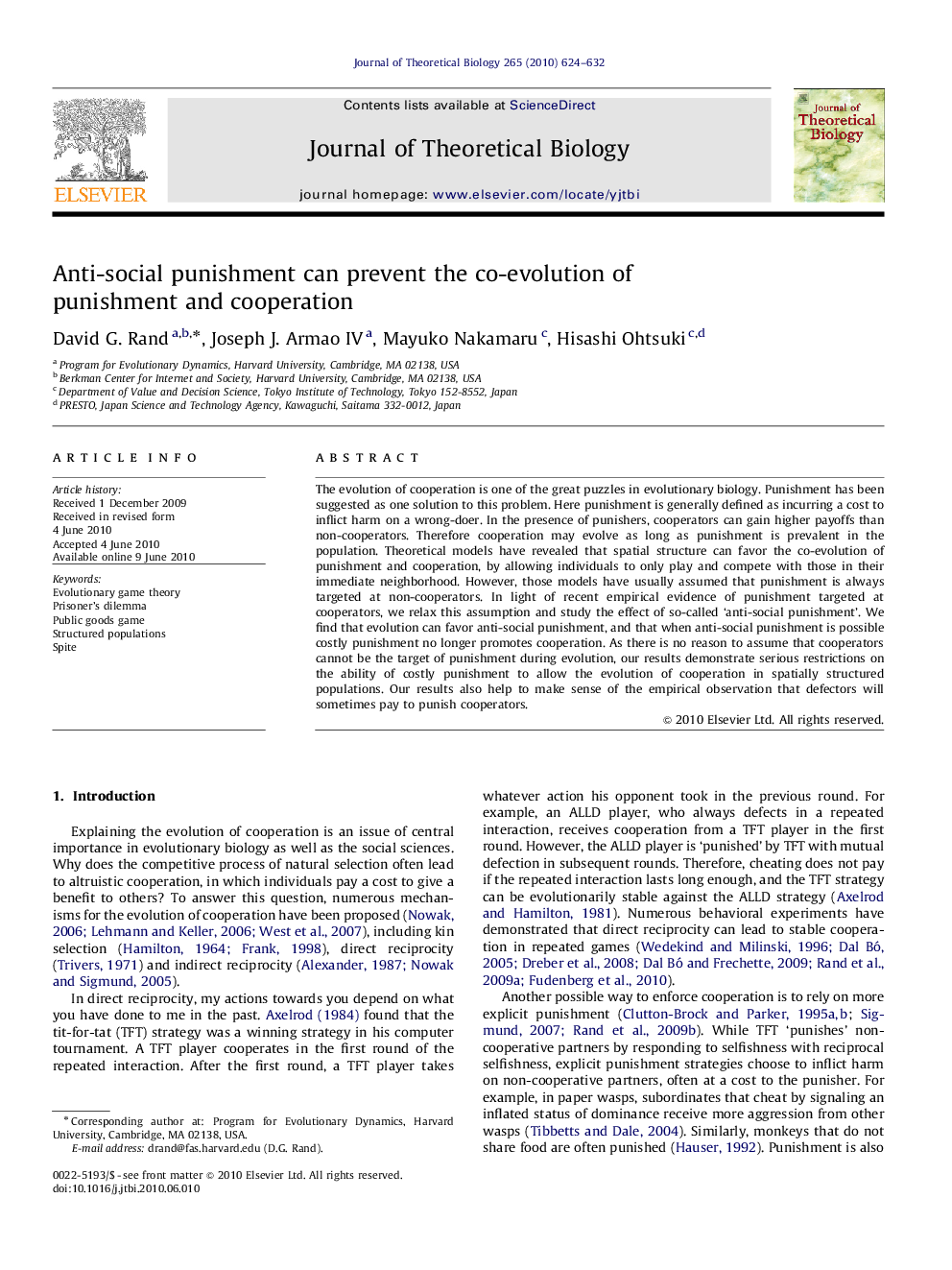| Article ID | Journal | Published Year | Pages | File Type |
|---|---|---|---|---|
| 4497466 | Journal of Theoretical Biology | 2010 | 9 Pages |
The evolution of cooperation is one of the great puzzles in evolutionary biology. Punishment has been suggested as one solution to this problem. Here punishment is generally defined as incurring a cost to inflict harm on a wrong-doer. In the presence of punishers, cooperators can gain higher payoffs than non-cooperators. Therefore cooperation may evolve as long as punishment is prevalent in the population. Theoretical models have revealed that spatial structure can favor the co-evolution of punishment and cooperation, by allowing individuals to only play and compete with those in their immediate neighborhood. However, those models have usually assumed that punishment is always targeted at non-cooperators. In light of recent empirical evidence of punishment targeted at cooperators, we relax this assumption and study the effect of so-called ‘anti-social punishment’. We find that evolution can favor anti-social punishment, and that when anti-social punishment is possible costly punishment no longer promotes cooperation. As there is no reason to assume that cooperators cannot be the target of punishment during evolution, our results demonstrate serious restrictions on the ability of costly punishment to allow the evolution of cooperation in spatially structured populations. Our results also help to make sense of the empirical observation that defectors will sometimes pay to punish cooperators.
